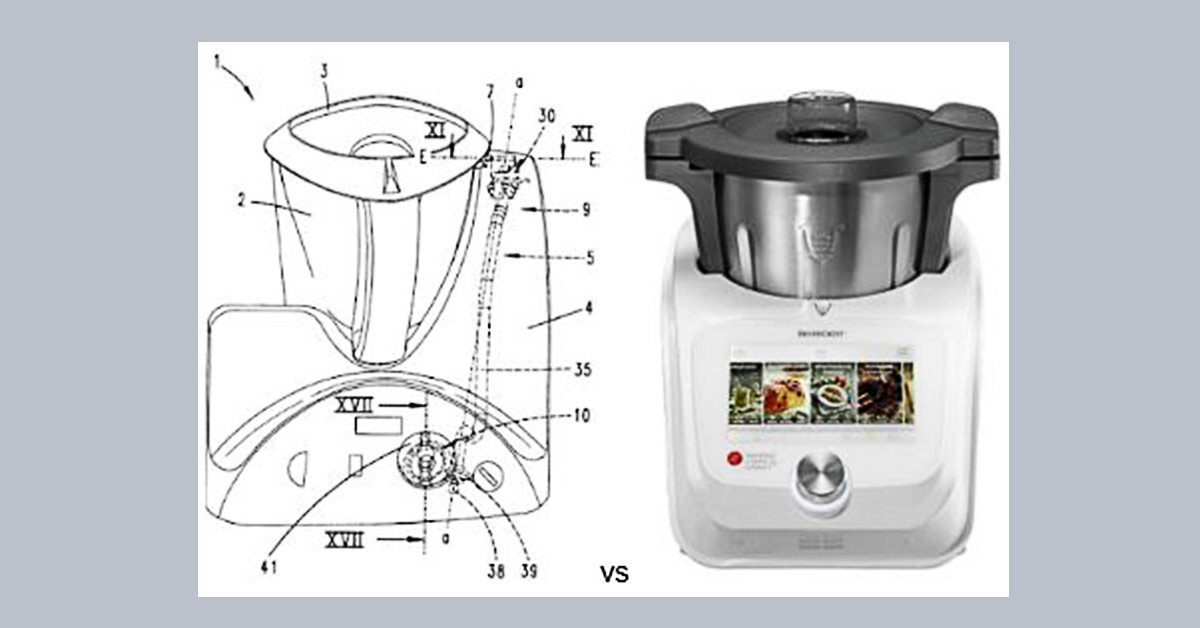
17 May “Thermomix” vs “Monsieur Cuisine Connect”: the battle of the kitchen robots ends upside down
As many will recall, a year ago, the Commercial Court No. 5 of Barcelona upheld the legal action of Vorwerk & Co. Interholding GmbH (“Vorwerk”), manufacturer of the Thermomix® multi-purpose kitchen appliance, against the supermarket chain Lidl Supermercados, S.A. (“Lidl”), declaring that Lidl’s “SilverCrest Monsieur Cousine Connect” (Thermomix® competitor) infringed Vorwerk’s patent protecting technology consisting of a “Food processor”.
Recently, the case has taken a turn. The Court of Appeals of Barcelona (judgment No. 14/2022 of 13 January 2022) upheld Lidl’s appeal, declaring Vorwerk’s patent invalid and the infringement non-existent. It thus gave the green light for Lidl to resume marketing its Monsieur Cousine Connect.
As for the invalidity of the patent, which was one of the pillars of Lidl’s defence, the Court of Appeals considered that the patent was invalid for two different reasons: illegitimate added subject-matter during its prosecution and lack of inventive step.
On the first issue, the Court of Appeals concluded that the combination of two of the features included in claim 1, namely that the control board has at least two separate control circuits, one for the stirring or mixing member and the other for the weighing device, is not supported by the patent application as originally filed.
With that finding, the Court of Appeals understood that the first attack of invalidity on the grounds of added subject-matter had to be upheld, which determined the invalidity of claim 1 and thus the invalidity of the entire patent. That was sufficient to uphold Lidl’s appeal, but the Court of Appeals answered the other issues raised in the appeal “in greater detail”.
Regarding the second ground for invalidity, the first instance judgment had concluded that the invention claimed in the patent was indeed very simple but not obvious. In the Court of Appeals’s view, on the other hand, the solution to the objective technical problem (how to achieve a food processor that combines a safe mechanism and a weighing system independent of the actuation of the switch) would have been obvious to a person skilled in the art, because the patent specification itself stated that the relevant features were already in the closest state of the art (earlier inventions by Braun, Philips, and Ronic).
As to the infringement, the Court of Appeals concluded that Lidl’s robot does not reproduce the necessary two-step sequence claimed in the patent (first, the mixing vessel must be stopped; second, the lid must be removed) in order to be able to intervene safely in the mixing vessel. Its lid can be opened without any prior action, i.e. without first stopping the mixing mechanism, and it is this opening or unlatching of the lid by means of a small turn on its axis that stops the mixing mechanism, although not immediately. In the Court of Appeals’ view, it reproduces a safety system already part of the state of the art.
What is striking from the judgement is that the Court of Appeals answered all the questions raised by the appeal, albeit in greater detail, which is to be welcomed, and expressed doubts as to whether we are dealing with a case of illegitimate added subject-matter and lack of inventive step. We, therefore, wonder whether, in the face of so many doubts, a decision should not have been made in favour of a title which was granted (by the European Patent Office), such as Vorwerk’s patent.
The judgment is final, as Vorwerk did not file a cassation appeal before the Supreme Court. Accordingly, its patent is cancelled, and the battle ends with a victory for Lidl. In any case, Vorwerk’s patent would lapse very soon – next 27 June; from the following day, any third party might freely exploit the invention claimed by the patent.
Author: Emil Edissonov



